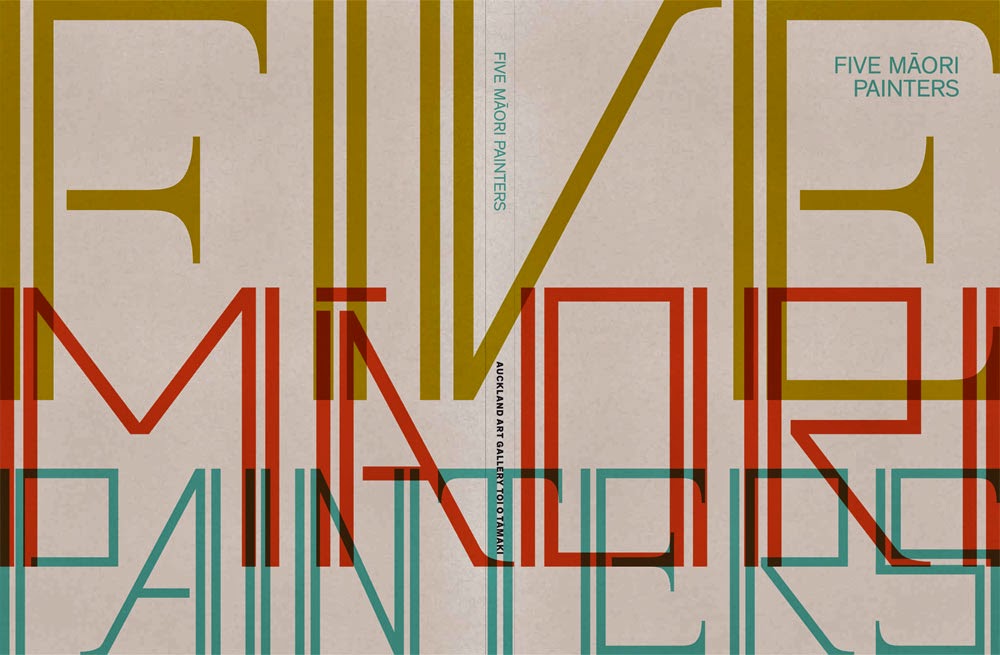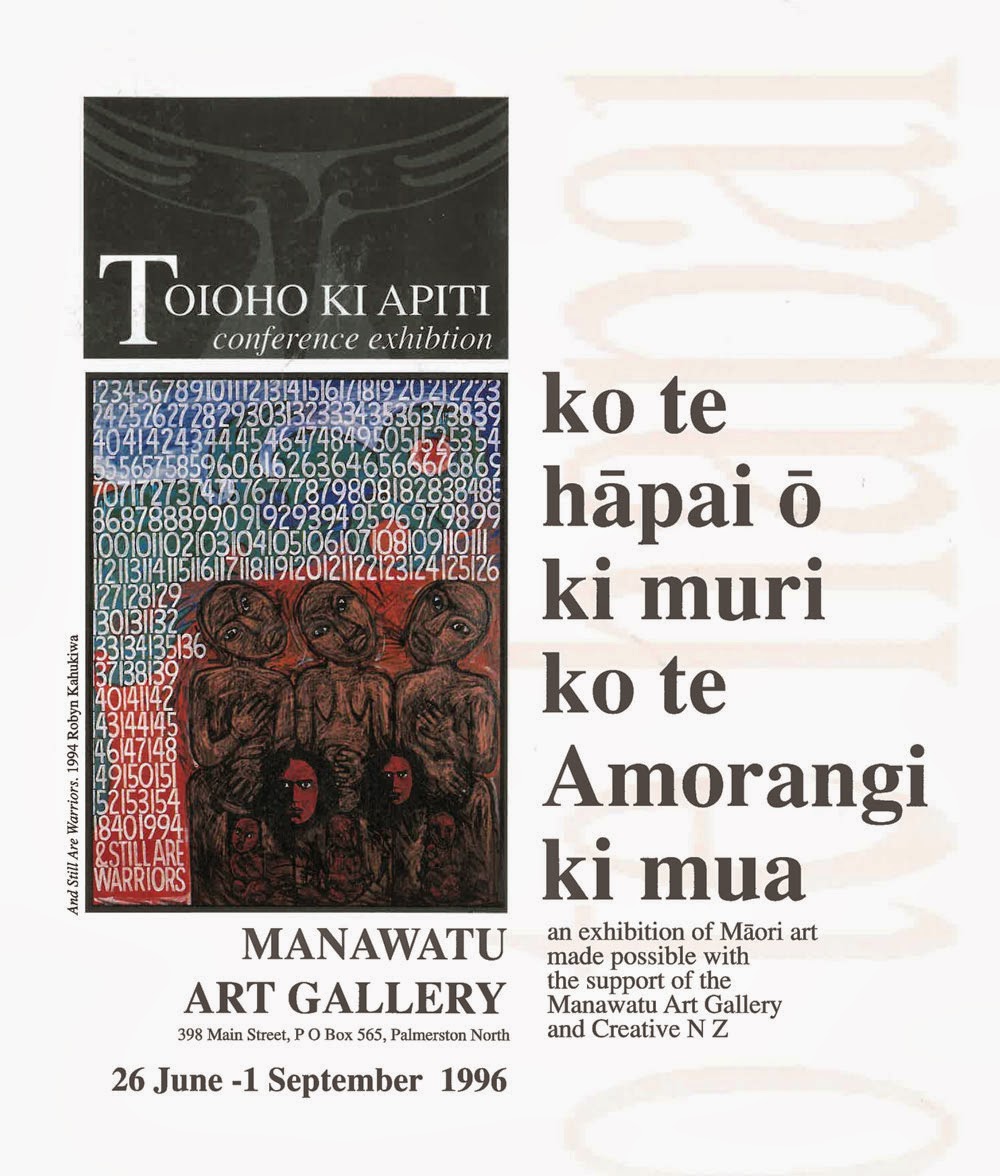Monday 31 March 2014
Ngahiraka Mason

Five Māori Painters catalogue cover
My generation of Māori artists, writers, curators, historians, cultural practioners, critics, and art observers harbour stories about the 1996 keynote address delivered by Professor Hirini Moko Mead at the inaugural Toioho ki Apiti Māori Art Conference, hosted by Massey University, Palmerston North.
The much anticipated conference was the mastermind of teachers and artists Robert Jahnke, Kura Te Waru Rewiri and Shane Cotton. Together they trail-blazed the first kaupapa Māori Art School driven by Māori values and principles, based in and supported by the Māori Studies department at Massey University, under the guidance of Professor Mason Durie, around the time of the conference
The conference exhibition carried its own title: Ko te hapai o ki muri ko te Amorangi ki mua and was presented at Manawatu Art Gallery. The exhibition comprised a mix of heritage and contemporary art disciplines, by emerging and senior artists.

Ko te hapai o ki muri ko te Amorangi ki mua catalogue cover
The conference represented the first real attempt to provide an overview of Māori art and gather together a diversity of artists who also displayed a range of innovative practice, known as contemporary Māori art. I was fortunate to travel to the conference and contribute as an exhibiting artist through the agency of Kura Te Waru Rewiri. My artwork from this time no longer exists but the memory of the conference endures, in particular Hirini Moko Mead’s keynote presentation.
I gained insight into the field of contemporary Māori art which has continued to give me cause for reflection on where we are today as contemporary people continuing to pioneer a contemporary Māori arts movement. I did not know then that I would become a curator in a fine arts museum and work alongside the architects and prime movers of Māori and New Zealand contemporary art.
The exhibition I recently curated Five Māori Painters, is the platform for a symposium Changing The Story: How do we understand contemporary indigenous art today? hosted by Auckland Art Gallery Toi o Tāmaki on Saturday April 12. The symposium is also an opportunity to reflect on Mead’s infamous keynote address, with his encouragement, as a focus for this one-day event and to ask how what we have learned since his groundbreaking lecture.
Further information:
Changing The Story is free and open to all, however people are encouraged to register via Eventfinda as there is limited capacity at the venue. Among the symposium participants are Kura Te Waru Rewiri, Fiona Foley and Robert Jahnke.
The launch of the publication Five Māori Painters – which includes in-depth essays on artists Kura Te Waru Rewiri, Star Gossage, Saffronn Te Ratana, Emily Karaka and Robyn Kahukiwa, as well as two essays on paint materials and techniques – will close the symposium.